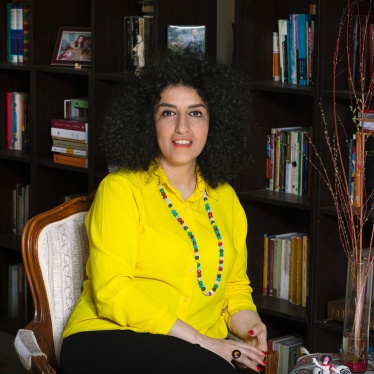(Lagos) – The sudden dismissal of Nigeria’s controversial anti-corruption chairman will not fix the troubled agency she led, Human Rights Watch said today. The government should carry out broad institutional reforms if Nigeria is to make real progress against corruption.
On November 23, 2011, President Goodluck Jonathan dismissed Farida Waziri, chairman of the Economic and Financial Crimes Commission (EFCC). The commission’s record in fighting high-level corruption has been consistently disappointing under both Waziri and her well-regarded predecessor, Nuhu Ribadu, Human Rights Watch said. Partly due to the commission’s own failures, it has been largely unable to secure convictions against senior government officials charged with corruption. As Human Rights Watch showed in a recent report on the institution’s problems, broader institutional failures – such as executive interference and judiciary inefficiency – will need to be addressed if the commission is to improve its anti-corruption record, Human Rights Watch said.
“The EFCC’s mandate is to fight corruption that the political system actually rewards, and to accomplish that by working through institutions that are either broken or compromised,” said Daniel Bekele, Africa director at Human Rights Watch. “That’s an almost impossible job no matter who is in charge.”
The commission, established in 2003, is the only government institution that has publicly challenged the longtime impunity of Nigeria’s ruling elite. It has arraigned 35 nationally prominent political figures on corruption charges, including 19 former state governors. But many of those cases have made little progress in the courts, and not a single politician is currently serving prison time for any of these alleged crimes. The commission has secured four convictions of senior political officials since 2003, but they have faced relatively little or no prison time.
The Jonathan administration should present legislative amendments granting tenure security to the commission chairman, Human Rights Watch said. The institution can never be truly independent if the president can dismiss its chairman at will. The government should also bolster Nigeria’s other key anti-corruption institutions, the Independent Corrupt Practices and Other Related Offences Commission and the Code of Conduct Bureau.
Nigeria’s weak and overburdened judiciary has also been an obstacle to effective prosecutions. Most of the corruption cases against high-level political figures have been stalled in the courts for years, with their trials not even begun. In early November, Nigeria’s new Supreme Court chief justice, Dahiru Musdapher, took a long overdue initiative by instructing judges to expedite corruption cases, giving them a six-month deadline to complete these cases.
The government should build on this promising initiative by beginning the long-term process of repairing the battered federal court system, reforming federal criminal procedure, and examining ways consistent with due process rights to establish special courts or designating specific judges to hear only corruption cases, Human Rights Watch said.
Human Rights Watch has also called on Jonathan to pledge publicly not to interfere in the EFCC’s work and to support aggressive efforts to fight corruption no matter who is implicated. Past governments have openly interfered in key anti-corruption cases, discouraging the commission from acting as aggressively as it otherwise might.
“One of the EFCC’s greatest weaknesses has been its lack of independence and susceptibility to political pressure,” Bekele said. “President Jonathan’s sudden firing of Farida Waziri will only make that problem worse unless the government pushes through reforms to bolster both the EFCC and the other institutions it depends on.”
Waziri was appointed in 2008 in controversial circumstances after Nuhu Ribadu was forced from office in apparent reprisal for his attempted prosecution of a powerful former governor, James Ibori. Waziri has been widely criticized as ineffective and politically beholden, but in the months leading up to her sudden ouster she initiated a flurry of prosecutions against senior political figures. In October the commission arraigned four former state governors and a serving senator on corruption charges, and in June the agency filed corruption charges against the former speaker and deputy speaker of the House of Representatives – all of them members of the ruling People’s Democratic Party.
During Waziri’s three-and-a-half years in office, the agency arraigned 21 senior political figures on corruption charges but only secured two convictions in these cases. Her four-year term in office was due to expire in May 2012.
Endemic corruption at all levels has kept Nigerians mired in poverty despite the country’s considerable oil wealth. Human Rights Watch research has documented how political corruption in Nigeria fuels violence, police abuse and denial of basic health and education services.






